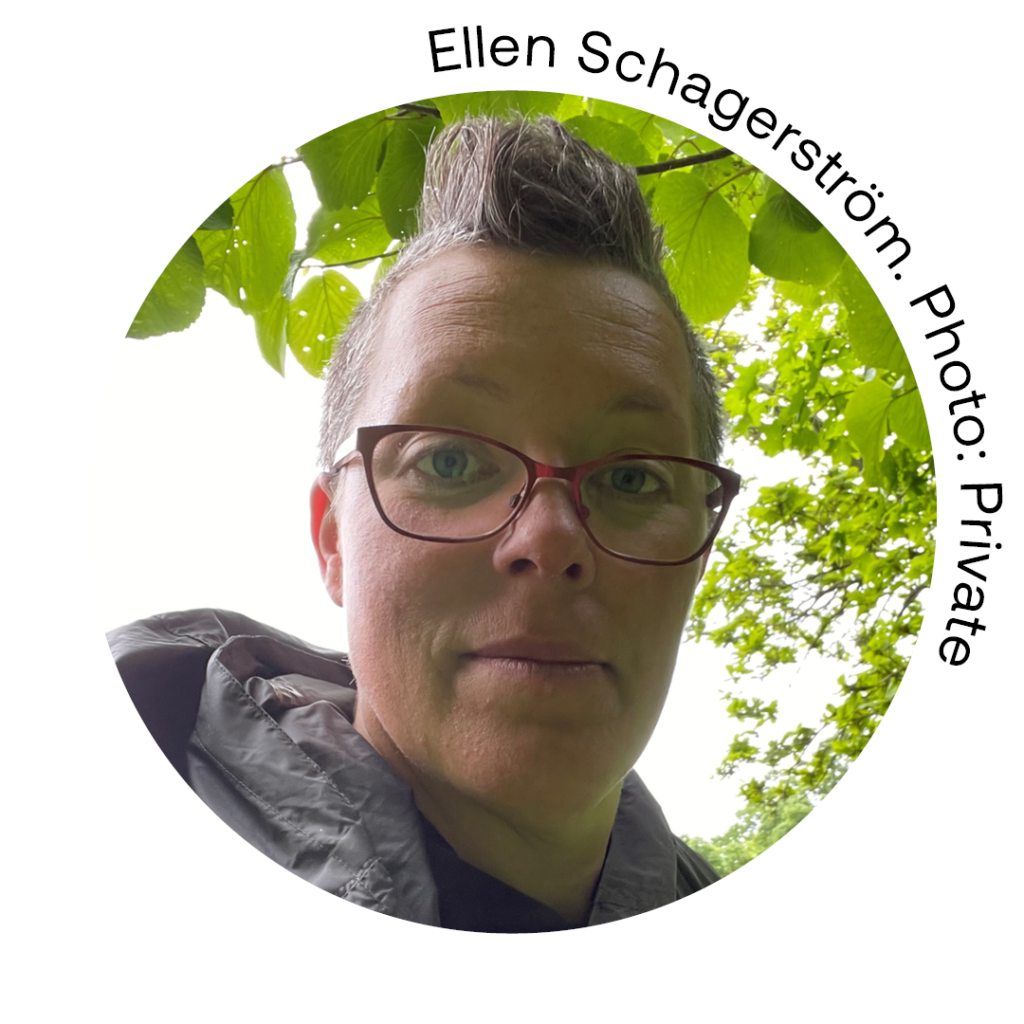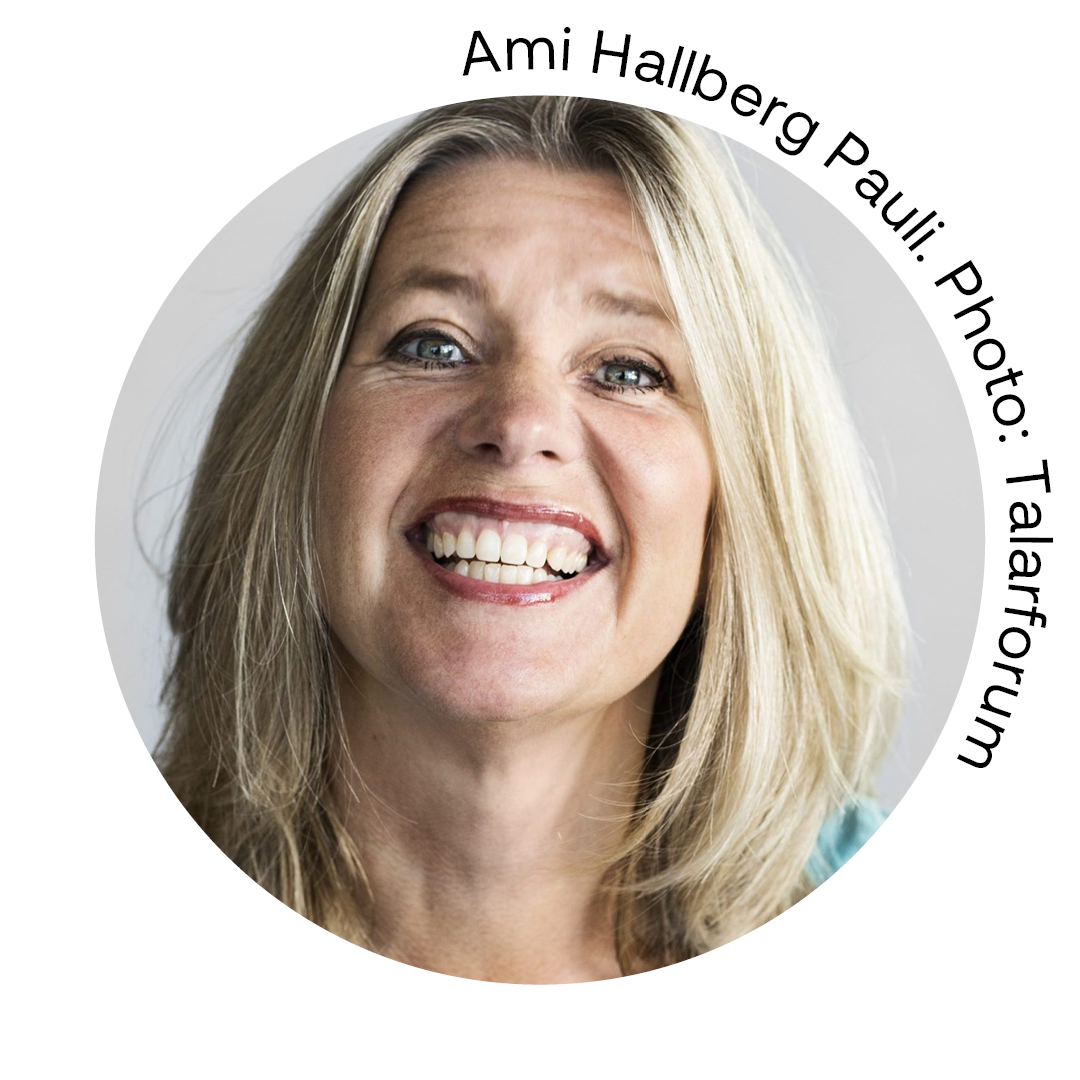Although many people have an emotional connection to the Baltic Sea, knowledge about the marine environment is often low. Can humour be used to increase our understanding of the challenges facing the sea while inspiring behavioural change? This is what Ellen Schagerström is exploring in an innovative project where she investigates how stand-up comedy can be used to communicate science.

You are seated in front of a lecture. A researcher stands at the front with a PowerPoint presentation. Several graphs are displayed on the screen, but it is not clear what the values on the axes mean. You lean forward and try to read the explanations, but are met with unfamiliar concepts. You lean back with a sigh and glance at your watch – 30 minutes have passed and at least as much time remains. As you leave the presentation, you struggle to gather your thoughts. What was the purpose of the study again? As you try to remember, you realise it wasn’t even mentioned…
For the general public, research presentations risk feeling just like this – incomprehensible and difficult to relate to. While knowledge about the marine environment is lacking among large parts of the public, understanding the environmental challenges facing the Baltic Sea is crucial to improving its environmental status. New knowledge reaches those who are already familiar with and engaged in Baltic Sea issues. But reaching those without a particular interest in the marine environment is much more difficult. The likelihood that they would attend a lecture on Baltic Sea research is vanishingly small, and the chance that they would leave with newfound inspiration is perhaps even smaller.

Greta Thunberg says we must listen to scientists. But how can people listen to us when we talk in a way that is incomprehensible to the general public? says Ellen Schagerström, researcher at the Department of Biological and Environmental Sciences at the University of Gothenburg.
Communicating through humour
Throughout her career as a researcher, Ellen has worked on communicating research in various innovative ways. She believes that it is necessary to invest more in communication and find new ways to communicate research findings.
– To raise awareness of the Baltic Sea marine environment and inspire behavioural change in the public, we need to reach those who have never engaged with these issues before, Ellen says.
On the theme of science communication, Ellen is carrying out a slightly unconventional project to explore whether humour can be used as a tool to communicate knowledge about the Baltic Sea. With the help of humour coach Ami Hallberg Pauli, Ellen has produced a stand-up performance that will be shown to audiences in Stockholm, Gothenburg and Malmö.

Attention-grabbing themes
The aim of the project is to raise awareness and raise ideas about various Baltic Sea issues. Three themes are in focus: eutrophication, invasive species and food from the sea. The topics were chosen not only for their importance to the Baltic Sea environment, but also for their potential to be transformed into something that captures the audience’s attention and inspires both laughter and reflection.

– It has been great fun and challenging to develop the material. Stand-up is an extremely technical art form where you have very little time to make your point, says Ellen.
One challenge is to get the jokes at the right level, otherwise they risk falling into a gap where those who know something about the subject think it’s too easy, while the general public still thinks it’s too difficult.
– Then it won’t be fun and you won’t reach anyone, says Ellen. Ami is an incredibly skilful teacher who has pushed me to constantly explain things in a simpler way, she adds.
Laughter can open doors
Before the project started, Ellen had wondered how to get someone to take in information that is neither of interest to nor within the same opinion corridor as the recipient. Perhaps it is even more challenging today when our information flow is largely driven by the searches we have done in the past. As a result, we are presented with content that confirms our existing worldview (so-called filter bubbles).
The first conclusion came quickly – lecturing or lecturing someone is definitely not the way to go.
– When someone places themselves above me and tells me what to do, well, I want to do the exact opposite, says Ellen.
Instead, she sat down and thought about the situations in which she herself is willing to listen to something that challenges her existing views. The answer was humour!
– People listen to something that makes them laugh. I myself can laugh out loud at a really well delivered joke even if I don’t agree with the content, she continues.
One canapé of knowledge at a time
According to Ellen, a common reason why the public may find it difficult to absorb research results is the overwhelming amount of information usually presented by researchers. There is simply a lack of tailoring the information to the needs and understanding of the recipient.
– Imagine being served a large buffet with hundreds of small dishes. Not everything will be to your liking and you will not remember what you have eaten. It’s completely overwhelming, she says.
– To make something stick, it is more effective to present a small and well-chosen sample. Then the person is more likely to leave curious for more!

Ellen tests the stand-up material in front of an audience for the first time. Photo: Ami Hallberg Pauli.
Not all scientists need to be comedians
When asked if more researchers should use humour as a tool to disseminate their findings to the public, Ellen says no – that’s not the aim of the project. Instead, she wants to show that different methods are needed to reach different audiences.
– While it is important to present your results, researchers are not communicators, she says.
– I would like to see funding for a specific communicator within each project. Someone with a solid research background who understands the topic, but who is also trained in communication and can convey the results in an engaging and understandable way, she concludes.

More about the project
The project ‘Fun Facts – Communicating Science Through Stand-Up Comedy’ will be carried out by Ellen Schagerström at the University of Gothenburg and will run until 2025. Through BalticWater’s Program to fund research projects and pre-studies, the project has been granted funding of SEK 189,659 to support the implementation of the scientific study. You can read more about the five other projects that have received funding in the article Six new research projects for a living Baltic Sea.

